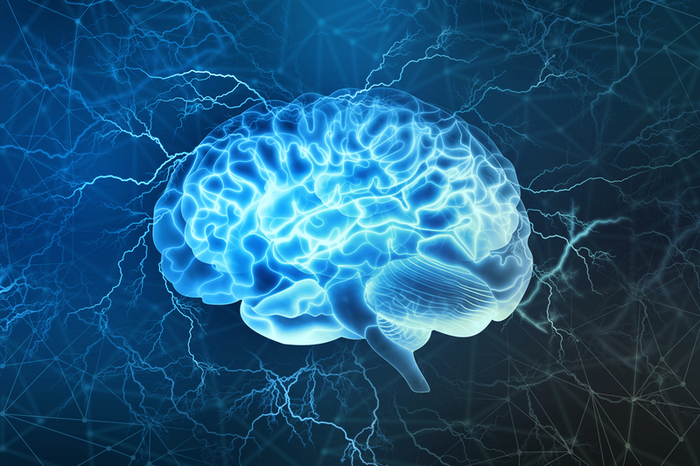- Calls to this hotline are currently being directed to Within Health or Eating Disorder Solutions
- Representatives are standing by 24/7 to help answer your questions
- All calls are confidential and HIPAA compliant
- There is no obligation or cost to call
- Eating Disorder Hope does not receive any commissions or fees dependent upon which provider you select
- Additional treatment providers are located on our directory or samhsa.gov
Eating Disorders and the Brain: Risks to the Nervous System
It can feel frightening to recognize signs that something is wrong with your loved one yet not know what these signs are indicating. When it comes to eating disorders, identifying the signs of a problem early in the disorder can make an important difference in early diagnosis, effective treatment, and long-term recovery.
Increasing your awareness of what the red flags of eating disorders are can help you to support a loved one should they present with these symptoms.
Common Signs of an Eating Disorder
Eating disorders are biological, psychological, and social in nature, therefore, so are their symptoms. Signs that a loved one is struggling can vary from the physical impact to the mental and emotional symptoms.
Related Reading
- Health Problems from Eating Disorders
- Eating Disorder Effects on the Musculoskeletal System
- Respiratory Problems Anorexia or Bulimia
- Can Eating Disorders Harm the Heart?
- Eating Disorders on Your Digestion
- How Disordered Eating Affects Your Endocrine System
- How EDs Affect Your Hair, Nails and Skin
- What Anorexia and Bulimia Do to the Reproductive System
- Your Immune System and Disordered Eating
Physical Warning Signs of an Eating Disorder
Eating disorders often involve extreme behaviors that impact the nourishment and physical health of the individual. While you cannot determine whether to not someone has an eating disorder based on their physical presentation, some signs can indicate an individual is struggling such as:
- Loss/fluctuation of body fat and muscle.
- Low blood pressure and pulse.
- Yellow/gray and dry skin.
- Growing fine hair all over the body (lanugo).
- Loss or irregularity in the menstrual cycle (amenorrhea).
- Chronic constipation.
- Abdominal pain and gastrointestinal issues.
- Impaired immune system.
- Difficulty regulating temperature or tolerating the cold.
- Lethargy and low energy.
- Dental erosion.
- Scarring or scrapes on the knuckles due to purging.
- Dizziness and/or fainting spells.
- Increased musculoskeletal injuries from over-exercise.
Psychological Symptoms of Eating Disorders
The psychological warning signs that someone is struggling with disordered eating beliefs or behaviors can be less apparent from the outside but can be noted if one is aware of them and observes carefully. Some of these signs include:
- Reporting an intense fear of weight gain or becoming fat.
- Thoughts conversations focus on body weight, size, shape, and appearance & these topics appear to cause significant distress.
- Hyper fixation on food, including nutritional content and bodily impact.
- Ritualistic eating patterns such as small/large bites, pushing food around, eating in groups, avoiding certain foods, holding food in cheeks, etc.
- Distorted body image and/or self-view.
- Emphasizing and defending excessive exercise behaviors, even when the weather is bad, interferes with job/school/socializing, or injury occurs.
- Refusing to eat or be seen eating by others and avoiding eating in social situations.
- A pattern of declining to eat, possibly stating that they have “already eaten” and/or “aren’t hungry.”
- Mood swings and increased emotion dysregulation.
- Increased symptoms of mood disorders such as Generalized Anxiety Disorder, Major Depressive Disorder, etc.
- Difficulty thinking clearly and focusing.
Further Reading
Medical Complications of Eating Disorders
The physical impact of eating disorders can leave the body depleted, causing serious medical complications if the disorder is left untreated.
- Loss of menstrual cycle, difficulty conceiving, & possible infertility.
- Damage to the vital organs could result in life-threatening issues.
- Cardiovascular complications & increased risk of heart failure.
- Bone and muscle loss.
- Severe impact on career and relationship functioning.
- Increased symptoms of other mental illnesses such as depression, anxiety, and substance use.
- Obesity
- High cholesterol
- High blood pressure
- Diabetes
- Cardiovascular issues
- Arthritis
- Gallbladder disease
- Increased risk of some types of cancer.
How to Help Someone with an Eating Disorder
Recognizing the signs of an eating disorder is only the first step in supporting loved ones on their journey to treatment and recovery. Once you have identified warning signs, the first thing to do is to speak to your loved one. Be sure to do this in a non-judgmental and supportive manner that allows you to note the behaviors you have observed that are causing concern while creating space for your loved one to share with you what they are going through. If your loved one is open to getting help, direct them to their therapist or medical professional who can support them in monitoring the physical symptoms of their disorder as well as refer them to eating disorder treatment professionals.
Above all, be sure that you approach your observations and interventions from a place of openness and unconditional support, not attempting to “be right” but to be there.
Author: Margot Rittenhouse, MS, LPC, NCC
Page Last Reviewed and Updated By: Jacquelyn Ekern MS, LPC on December 3rd, 2021


